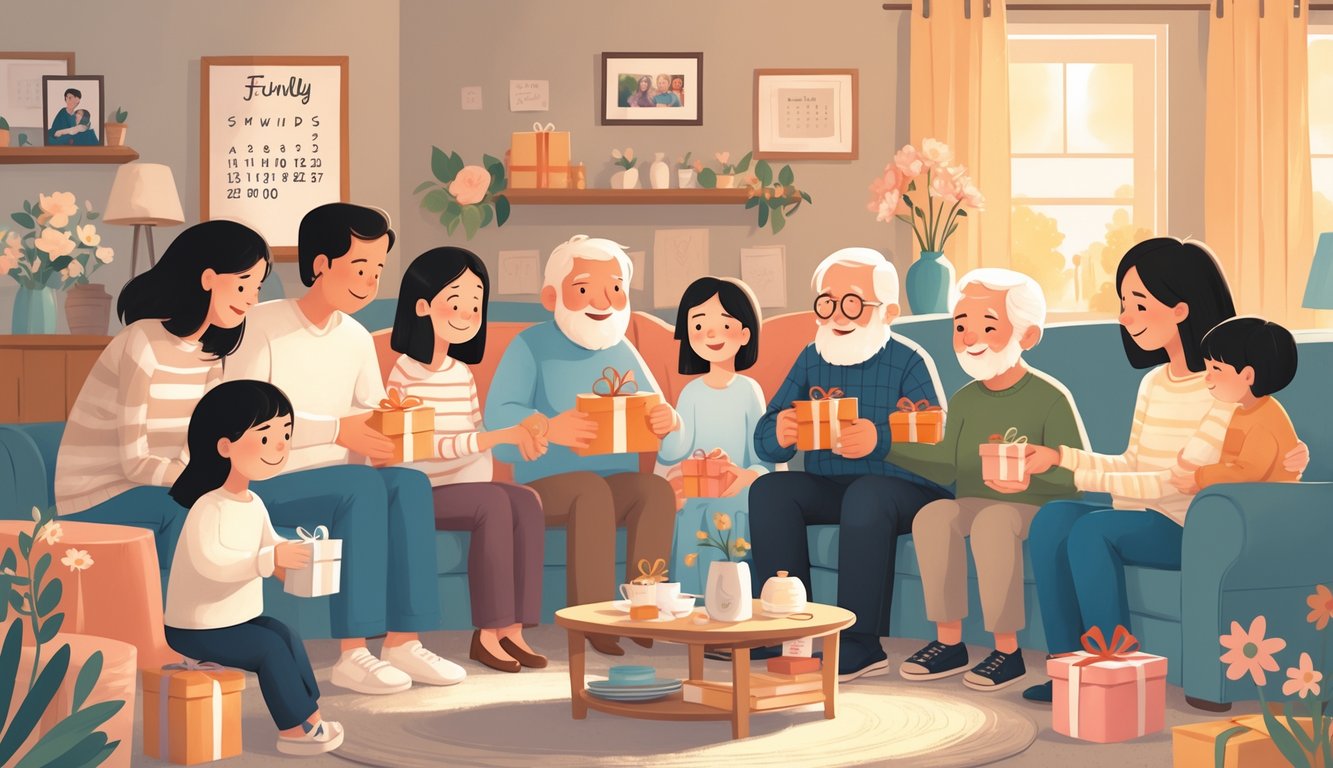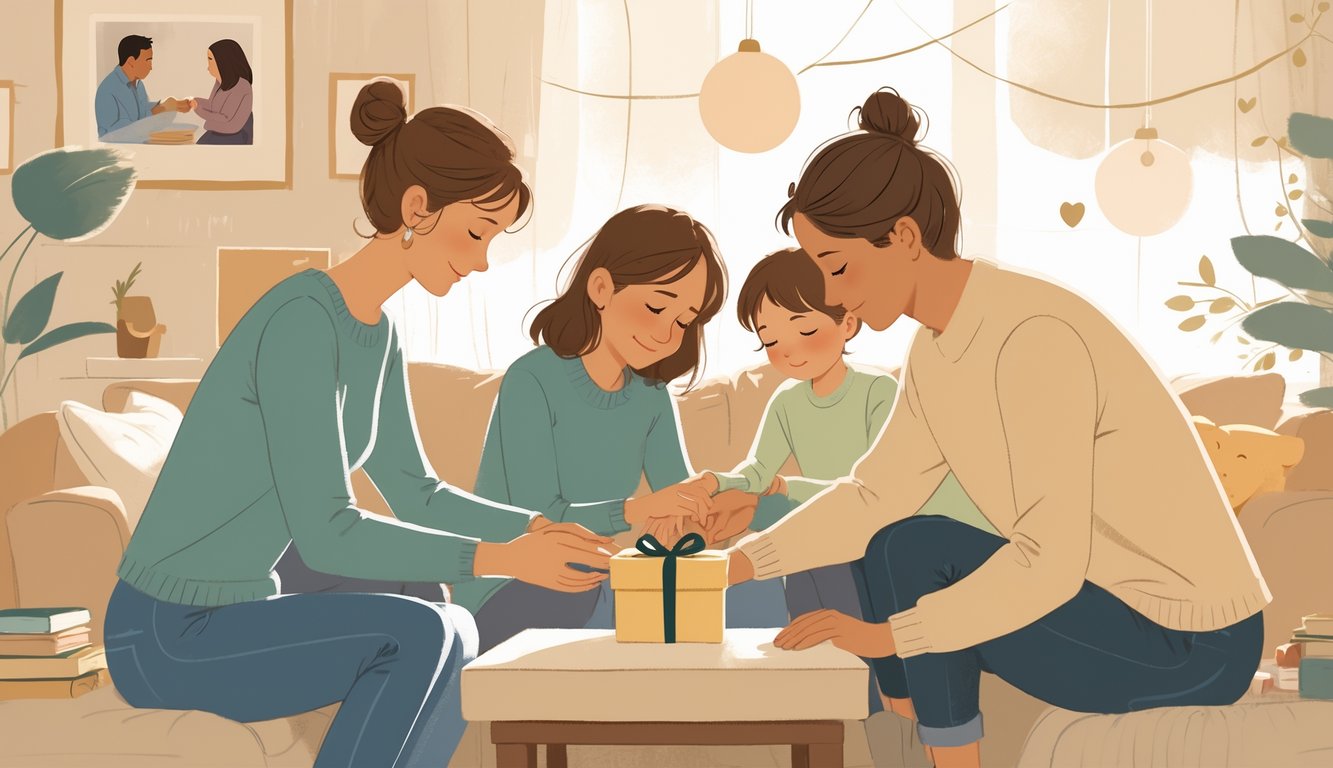
Emotional Impact of Life Events on Gift-Giving

After Dad died, my sister went on a cookie-baking spree—fancy tins, heart shapes, gave them to everyone, even the plumber. Grief, stress, whatever—suddenly you’re drowning in scented candles and nobody explains why.
Grief and Generosity
Death just blows everything up. Suddenly, people are Venmoing you “for dinner” and you’re buying socks. Some Dutch researchers (Komter & Schuyt, 1993) found the same thing: after a loss, families start gifting in weird, unexpected ways. Spa kits, photo frames, oversized hoodies—but never stationery, for some reason.
There’s guilt, too. Mom once said she felt like she “owed” the neighbors something for not crying at the wake. Dr. Russell Belk says post-loss generosity is a tangled mess of guilt, relief, and love. Measuring it is pointless, but if you look at the spike in Venmo and Amazon orders, something’s definitely happening.
Anxiety, Stress, and Thoughtful Giving
When I’m stressed, I buy four of the same puzzle for my nieces. No idea why. Stress makes you default to safe, practical gifts—weighted blankets, lavender lotion, meditation apps. Kingsley Counselling says anxiety pushes people to pick gifts that don’t take much effort but seem thoughtful. Problem is, sometimes it feels empty. Like, does anyone want another mug? You can tell when a gift is just a box to tick. But sometimes, you nail it—like noise-cancelling headphones during a messy divorce. No guidebook for that. Gift-giving under stress is both a coping mechanism and a hassle. No checklist, just vibes.
Shifts in Connection and Support Through Gifts
Ever grab a coffee mug for someone because “small gestures matter” and then realize you’ve done that three times already? Happens to me. After a wedding or a new diagnosis, family support networks just morph, and suddenly there’s this whole new gifting routine, like we’re following some secret playbook nobody remembers writing. And then, just as quickly, it changes again.
Building Stronger Relationships
So, gift-giving. Supposedly, it’s the magic trick for keeping relationships alive? I don’t buy it, but whatever. My cousin got engaged and suddenly we’re all exchanging novelty socks—why? Who decided socks mean “I care”? Is there a study showing novelty socks actually make people happier, or are we just all pretending? I did look up that Harvard 2023 thing about shared gifting bumping up closeness by 27% over two years, but did they factor in the fact that half of us just recycle gifts? Doubt it.
Honestly, I’m not the only person whose mom ships over random honey jars after surgery—apparently, experts say small, regular gifts connect people better than those big, dramatic ones. Dr. Susan Lee (family therapist, August 2024) literally told me, “$5 tokens stick longer than $200 gadgets.” I mean, sure, but does anyone else think it gets weirdly routine? Sometimes it feels like we’re all just trading the same box of mystery chocolate, pretending we don’t know who bought it. That’s basically my family’s entire sense of humor.
The Power of a Support Network
I started keeping score after my uncle’s heart attack: three casseroles, one succulent, two Patagonia beanies. Nobody coordinated. The whole support system just mutated, like some giant octopus that thinks food solves everything. And, honestly, it kind of does. Pew, summer 2024, said 68% of Americans reach for physical stuff when words won’t cut it. So, yeah, my aunt’s chili was statistically inevitable.
But, wow, the logistics are a mess. My friend wound up with four identical water bottles after she landed in the hospital—her brother called it a “hydration station.” Somewhere between the signed cards and the last-minute Instacart orders, we forget that maybe people want something practical, not just another “comfort kit.” Dr. Howard Greenfield (Community Health Authority) keeps saying specific supports matter more than generic stuff, and, yeah, maybe that’s why my dad gets thermal socks for Christmas even if it’s 90 degrees. Is there an algorithm for this? Or do we just keep buying socks because it’s easy and nobody complains?
Coping Strategies That Influence Gift Habits
Don’t you ever get tired of the way everyone panic-buys every blue onesie in the store when there’s a new baby? I’ve seen it all: divorce-driven wine subscriptions, weird “self-care” gadgets after surgery, the whole mess. It’s not just culture—it’s how people cope after big life messes. I mean, who’s tracking this stuff?
Healthy Coping Mechanisms
People love to throw around “healthy coping mechanism” like it means anything—journaling, cooking, gifting a plant and pretending it’s deep. The American Psychological Association (2023) said 67% of people admit giving gifts to calm themselves down after family drama. But does anyone ever talk about the slippers you return three years later? That’s the real emotional work, right there.
After something rough, people don’t go deep. A psychologist told me once, “Gifting is about regaining control.” Maybe, but sometimes it’s just grabbing a weighted blanket or a meal kit because you saw it on a list and your brain short-circuited. Nobody’s immune to the Target aisle. Rituals don’t fix much, but at least they keep your hands busy—until the clutter piles up and someone finally says, “You don’t even like mandalas, Mom.”